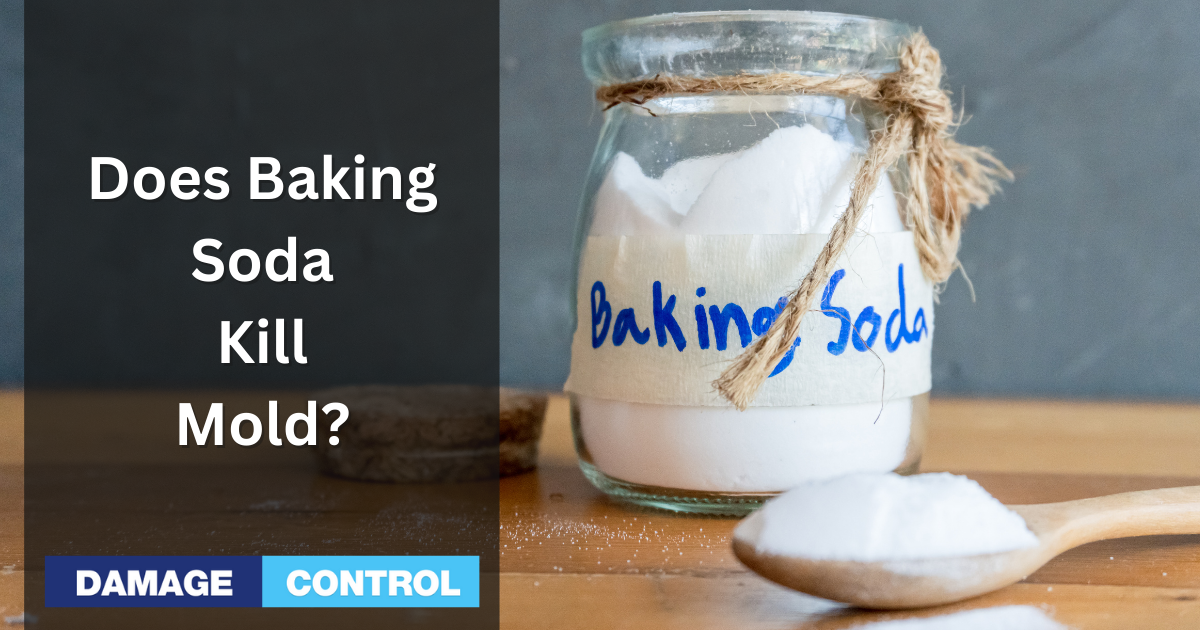Mold is one of the most persistent and dangerous substances that can be found in a person's home. Not only is it capable of doing catastrophic damage to the structure of a person's home, but it is also capable of causing severe health problems as well if left untreated. In fact, it's so dangerous that it's been used as a biological tool for war throughout history.
When you find mold in your home, you must take care of it ASAP. Otherwise, it will spread and endanger both the safety and health of you and your loved ones.
There are numerous cleaning solutions on the market that you can choose from to help get rid of the mold in your home. However, one popular option is baking soda. Here we will answer the question of whether or not baking soda is a viable solution against mold growth.
What is Baking Soda?
Baking soda is another name for sodium bicarbonate. Baking soda is typically used as a leavening agent for baked goods. However, it has other uses, such as cleaning.
This is due to the fact that baking soda is a mild alkali that causes dirt and grease to dissolve easily in water. But with mold, it's only a spot cleaner on hard surfaces. It's not going to help if it's on surfaces such as drywall.
Why is Baking Soda Good for Cleaning?
Baking soda has numerous qualities that make it an ideal cleaning solution. One of the most notable reasons it is a good cleaner is that baking soda is harmless to you and your family, unlike bleach or other harsh chemicals.
Baking soda is a salt, a neutral compound with a higher pH than neutral. It absorbs odors, unlike other cleaning solutions that merely mask them. Baking soda, when compared with typical soap, does not contain the fat molecules that typically make soap a less harsh cleaning solution.
Baking soda, however, is abrasive enough to clean without being so abrasive as to cause harm on most surfaces. Its abrasive nature limits its use to harder surfaces, so you should not use it on surfaces like drywall that can't and shouldn't be wet.
Does Baking Soda Kill Mold?
Baking soda is quite effective at killing mold. Because it has a pH of 8.1 it is not harsh like other chemicals that kill mold. Because baking soda is salt, which has purifying capabilities, it is more equipped to clean mold.
Not only does baking soda kill mold, but it also absorbs mold's nasty, musty smell. It also dries out the area where the mold grows, taking away the moisture it needs to grow.
How to Use Baking Soda to Kill Mold
First, take a spray bottle and add 1/4 of a tablespoon of baking soda. You must then add water until the spray bottle is filled. Then, shake up the bottle until the baking soda is thoroughly mixed.
When the solution is mixed, spray it on the area affected by the mold. Allow the mixture to set on the mold for 10 to 15 minutes. Once the cleaning solution has been set, gently scrub the mold away with a soft-bristled brush.
Then take a dry towel and wipe the surface down. Then rinse the surface to see what mold remains. If a substantial amount of mold is left, repeat the process until it is all gone.
Limitations of Baking Soda as a Mold Killer
While baking soda makes for an effective mold cleaner, it has limitations. First, because it is not as abrasive as other chemical cleaning solutions, it may take multiple attempts before you can fully get rid of the mold.
If the area you are trying to clean is particularly large, you may not want to use baking soda as it is better equipped for small areas rather than large ones. For larger areas, you may want to use more effective cleaning solutions.
Alternative Methods for Killing Molds
If baking soda is not a viable solution for you to use to clean mold in your home, don't worry. There are other viable methods and cleaning solutions that you can use.
Natural Cleaners to Try
There are other natural cleaners that you can use that are worth trying. For example, essential oils have become quite popular among aromatherapy people. However, essential oils have mold-fighting capabilities depending on the ones used.
Chemical Cleaners to Try
A wide selection of chemical cleaners on the market is designed to kill mold and prevent future growth. You can buy them in small quantities or in large gallon bottles. You can also create a cleaning solution by mixing 70% water with 30% white vinegar.
You can also use diluted bleach on non-porous surfaces.
When to Seek Professional Help
According to the EPA, if the mold growth in your home exceeds a 10-square-foot perimeter, it is unsafe to attempt to clean it on your own, which means it's not currently a safe place to live. If the mold growth in your home reaches that size, your best course of action is to seek the professional help of a water damage remediation service.
By turning to such a service, you are ensuring that the mold is dealt with professionally and that long-term solutions are put in place to prevent future mold growth.

